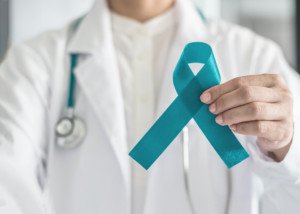
Too many periods may contribute to the cause of ovarian cancer — the deadliest of all gynecological cancers.
How many periods you have in your lifetime is linked to the risk of developing ovarian cancer — which has the highest death rate relative to number of cases diagnosed.
So how can periods, or menstruation, which is part of nature’s process, lead to ovarian cancer?
Menstruation results when an egg, which comes from the ovary, doesn’t get fertilized by sperm.
It’s not the actual menstruation (bleeding) that’s been tied to this high-mortality malignancy.
It’s ovulation, because when a woman ovulates, the egg (ovum) is released from the ovary, and this “injures” the tissue of the ovary, which then gets repaired.
The continuous injury and repair process may somehow contribute to this deadly malignancy.
So every time a woman has a period, this means that this injury and repair process to the tissue of her ovaries has occurred, and hence, the correlation between number of periods and this type of cancer.
Having one’s period is a marker for the ovarian tissue “injury.”
The theory then says that in some women (ovarian cancer is actually rare), ovulation causes the cells in the tissue to transform into cancer. But how this happens is not known.
This is actually a giant leap of conclusion, but statistics favor it because ovarian cancer risk has been shown to be lowered with use of oral contraceptives.

Freepik.com
“The less a woman ovulates, the lower the risk of ovarian cancer and is the reason postulated for the benefit of taking birth control pills to lower one’s risk,” says Dr. Kimberly Langdon, MD, OBGYN, medical advisor at Medzino Health.
“By stopping ovulation, the overall hormone production from the ovary is decreased compared to ovaries that are not suppressed by birth control pills.
“Even though birth control pills are hormones, their dose is minuscule compared to what the ovary puts out in an ovulatory cycle.
“So, the estrogen exposure is actually higher in women who don’t take something to suppress ovulation, and this is another postulated reason for the link between estrogen exposure and ovarian cancer.
“Thus, chronic anovulatory cycles [a period with no ovulation] and multiple egg sacs or follicles that may be seen in polycystic ovarian syndrome can increase the risk of ovarian cancer.
“Those with short cycles of say 21 days are therefore more likely to ovulate more in a lifetime than someone with every-35-day cycles.
“Also, the excess estrogen and imbalance of estrogen in anovulatory cycles can be a factor in ovarian, uterine and breast cancer.”
Further, a higher risk of ovarian cancer exists for women with the following situations (no particular order):
1) Never gave birth
2) Had their first child after age 30
3) Began having periods before age 12
4) Late menopause
5) Obesity
Researchers still need a better understanding of the relationship between the injury, its healing process and ovarian cancer — by investigating not only ovarian malignancies but also precancerous changes, accordind to a study from St. George’s University of London.
Symptoms of this Dreadful Disease
• Appetite suppression or quickly feeling full after eating when normally you don’t
• Increased abdominal girth
• Bloating
• Indigestion
• Abdominal or pelvic pain or heaviness
• Unexplained weight loss
• Unexplained fatigue
• Low back pain
• Leg pain
• Change in bowel habits
• Gas
• Nausea
• Excessive need to urinate
Note: These symptoms don’t always mean ovarian cancer, and can have benign causes, but if you have them for longer than a few weeks, see a gynecologist.
Ovarian cancer is the deadliest gynecological malignancy because symptoms typically don’t start presenting until the disease has reached an incurable stage. No reliable screening methods exist.

 Dr. Langdon, who is now retired from clinical practice, has delivered over 2,000 babies. Besides obstetrics, she specialized in gynecologic situations such as menstrual disorders, vaginitis, menopause, contraception, pelvic pain and minimally-invasive surgeries.
Dr. Langdon, who is now retired from clinical practice, has delivered over 2,000 babies. Besides obstetrics, she specialized in gynecologic situations such as menstrual disorders, vaginitis, menopause, contraception, pelvic pain and minimally-invasive surgeries.







































